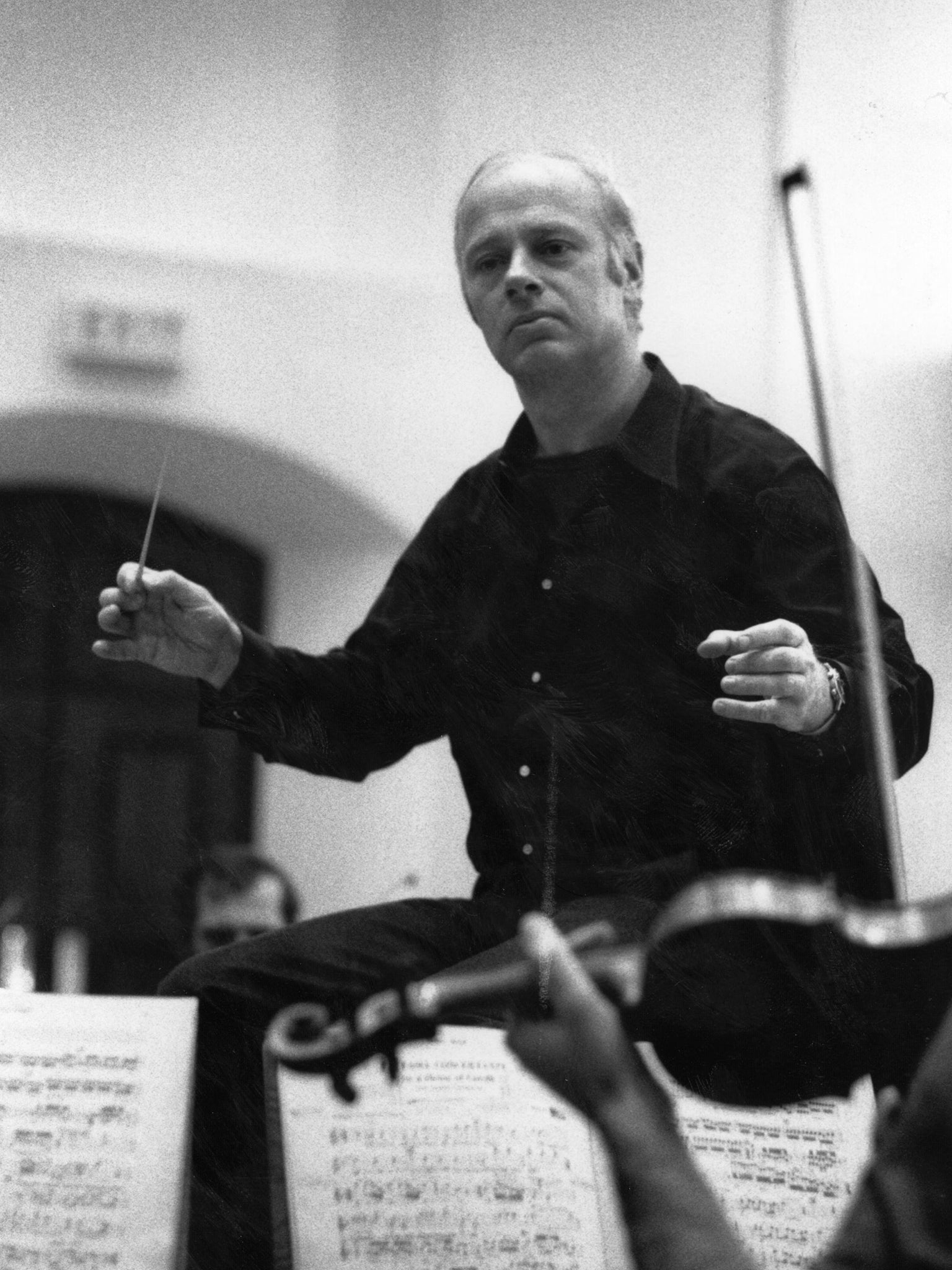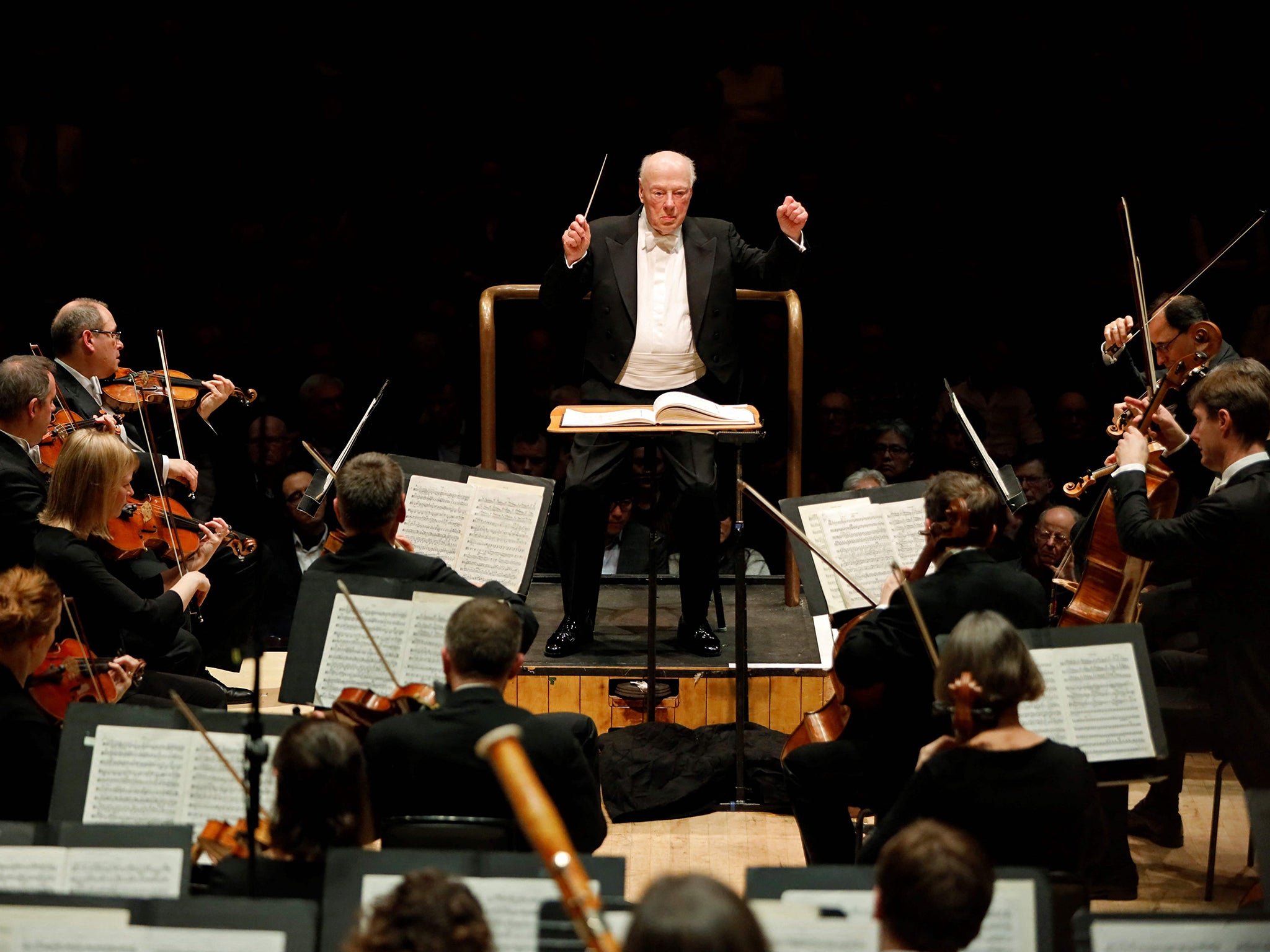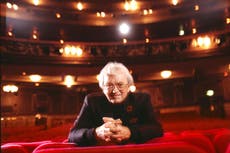Bernard Haitink: One of the great classical conductors of modern times
Known as the ‘enigmatic maestro’, Haitink was a towering figure who had conducted many of the major orchestras

Bernard Haitink was one of the great classical conductors of modern times, a towering figure who had conducted many of the major orchestras in his home country, the Netherlands, and the USA. In the UK he held leading roles at the Royal Opera House, Glyndebourne Festival and the London Philharmonic Orchestra.
The death of Haitink, aged 92, represents a significant loss to the world of classical music. Dubbed the “enigmatic maestro”, he was known for his shyness of publicity as much for the faithfulness of his interpretations. He once said that he saw his role as a conductor being to “embrace the orchestra, without suffocating them”.
Bernard Haitink was born in 1929 in Amsterdam, the son of Willem Haitink, a civil servant and Anna Clara Verschaffelt, who worked for Alliance Francaise. He trained at the Conservatorium van Amsterdam, where he was initially drawn towards the violin. However, he soon found his metier, taking classes under the eminent conductor, Ferdinand Leitner, during the mid-Fifties.
Haitink began his career as a conductor with the Netherlands Radio Union Orchestra, making his conducting debut in July 1954. He recalled of that first moment on stage with the orchestra “I looked like a rabbit in the light and remember thinking: close your eyes”. But he soon had the orchestra – and audiences – rapt with attention and admiration.
Two years later he joined Amsterdam’s Concertgebouw Orchestra. After the unexpected death of Eduard van Beinum in 1959, Haitink had risen to co-principal conductor, together with Eugen Jochum, by 1961. He went on to become the sole principal conductor in 1963. “I was far too young,” he later said of these early times with the Concertgebouw, “It took me a long time to reach a certain standard. But I’m happy with it now.”
Haitink had a reputation as a specialist in Mahler and Bruckner, having recorded complete cycles of their symphonies during his time at the Concertgebouw. But his repertoire was far wider, encompassing Britten, Shostakovich, even Ravel. He had come to Wagner relatively late in life, conducting Der Ring des Nibelungen (“the Ring Cycle”) on many occasions.

Nick Kimberley, writing for The Independent, wrote: “Haitink has the happy knack of moving this music along at a fair lick without ever rushing; and of filling in tiny details without seeming pernickety. His platform presence was modestly self-effacing, yet he seemed to be the cycle’s epicentre.”
In parallel with his key role in Amsterdam’s musical world, he was also principal conductor with the London Philharmonic Orchestra from 1967 to 1979. Haitink left the Concertgebouw in 1987, joining The Royal Opera House (ROH), where he succeeded Colin Davis as musical director, beginning the next stage in his long and influential career in British musical life.
When the ROH reopened in December 1999, following three years of extensive refurbishments, it welcomed an all-star performance – including Placido Domingo, Deborah Polaski, Stig Andersen and Robert Lloyd – leading the Royal Opera Chorus, under Haitink’s baton. He would remain with the ROH until 2002.

Haitink was music director of Glyndebourne Festival Opera from 1978 to 1988, overseeing influential productions such as Der Rosenkavalier (1980) – with stage design by Erte – and Albert Herring (1985), conducted by Jane Glover.
Glyndebourne’s executive chairman Gus Christie said in tribute: “We were incredibly fortunate to have Bernard here over a period of 22 years. I particularly remember his wonderful interpretations of the Peter Hall Mozart operas in the Eighties, a golden age in our history! As my dad [George Christie] said in 1988, his last year as music director here, ‘he was a man of total sincerity, formidable ability and prodigious achievement’.”
Interviewed around the time of his 2011 Brahms Prom concert, Haitink spoke of his faith in the integrity of composers’ original music scores, saying: “That word ‘interpretation’ should in a way be forbidden. When people talk about ‘that is my interpretation’ I get a bit seasick in my stomach. We have these wonderful scores and we have to try to make it work. And we have wonderful musicians, so what’s the problem? Just make music!”
He had retired in September 2019, aged 90, saying farewell from his final UK concert at the Proms, his 90th Promenade Concert. On 6 September 2019, he conducted the Vienna Philharmonic for the last time at Lucerne, bowing out at the end of a programme that included his beloved Beethoven and Bruckner.
Haitink had previously been married to Marjolein Snijder, with whom he had five children. He had latterly lived in London with his fourth wife, Patricia Bloomfield, a barrister and viola player, who survives him.
Bernard Haitink, conductor, born 4 March 1929, died 21 October 2021


Bookmark popover
Removed from bookmarks